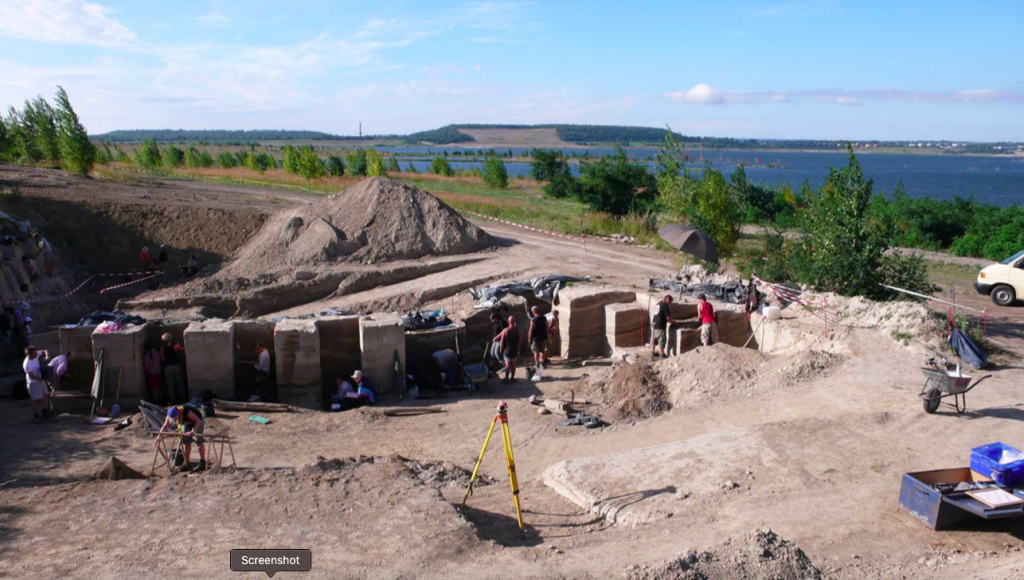
Archaeological site at Neumark-Nord in Germany. Courtesy Wil Roebroeks, Leiden University.
Hunter-gatherers were making changes to the ecosystem as early as 125,000 years ago, according to a newly published study by researchers from Leiden University in the Netherlands and Johannes Gutenberg University in Germany. Decades of excavations at a quarry known as Neumark-Nord near Halle, Germany, have turned up plentiful evidence of Neanderthal activity, including indications that these hominins may have converted areas of forest into grasslands. This is the earliest evidence of such activity, said the findings, which were published in the journal Science Advances.
“Among other things, we found the remains of hundreds of slaughtered animals, surrounded by numerous stone tools and a huge amount of charcoal remains,” said Wil Reobroeks of Leiden University.
Read the rest of this article...
No comments:
Post a Comment
Note: Only a member of this blog may post a comment.